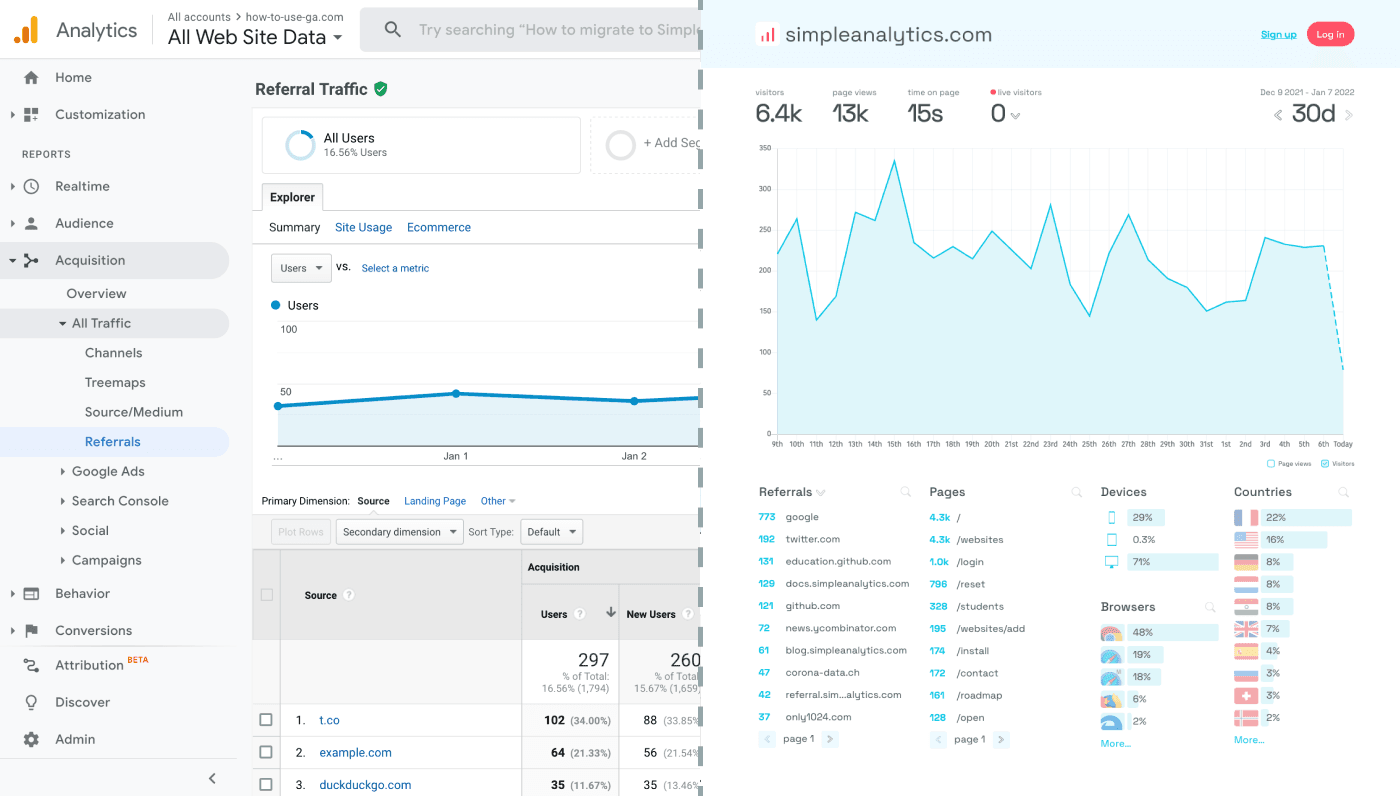Trick Factors To Consider for Marketers: When Does the Google Analytics Tracking Code Send an Event Hit to Analytics?
Trick Factors To Consider for Marketers: When Does the Google Analytics Tracking Code Send an Event Hit to Analytics?
Blog Article
Enhance Your SEO Approach With Effective Google Analytics Tracking Code
Integrating Google Analytics tracking code right into your Search engine optimization strategy is a critical step towards achieving measurable results. What particular methods can you take on to maximize the influence of this data on your SEO efforts?

Comprehending Google Analytics Essentials
To properly utilize Google Analytics for SEO, it is vital to realize its foundational principles. Google Analytics acts as a powerful device for tracking and evaluating site web traffic, supplying insights that are important for enhancing internet search engine performance. At its core, the system allows customers to keep track of customer behavior, website traffic sources, and key performance indications (KPIs) such as bounce rates and session periods.
Familiarity with the individual interface is vital. Secret areas include the Target market, Procurement, and Behavior tabs, each using valuable information. The Target market section offers group understandings, helping to customize web content to target users successfully. The Procurement tab reveals exactly how site visitors reach the site, whether with natural search, paid advertisements, or social media, guiding critical changes in marketing efforts.
Recognizing metrics such as organic traffic volumes and conversion rates is vital for reviewing search engine optimization performance. Ultimately, grasping these fundamentals enables digital marketing professionals to harness the complete capacity of Google Analytics, driving notified decisions that improve general search engine optimization methods. By establishing a solid foundation, businesses can properly assess their performance and determine opportunities for improvement in their online presence.
Setting Up Monitoring Code
Effectively setting up the tracking code is crucial for precise data collection in Google Analytics. The initial step involves creating a Google Analytics account and residential or commercial property, where you will get a special tracking ID. This ID is important for linking your internet site's data to your Google Analytics account.
Once you have your monitoring ID, integrate the monitoring code snippet right into your web site's HTML. This is normally put in the header section of each web page to guarantee it loads early in the web page making process. If you're making use of a Material Monitoring System (CMS) like WordPress, lots of plugins simplify this procedure, enabling you to include the tracking code without direct HTML editing and enhancing.
After implementing the monitoring code, it is vital to examine its performance. If the monitoring code is properly mounted and functioning, you can use the Google Tag Aide tool to validate. Additionally, check the real-time reporting function in Google Analytics to verify that data is being gathered appropriately.
Ensuring that the tracking code is effectively established lays the structure for reliable data evaluation, allowing you to make informed decisions to boost your SEO strategy and general internet site performance.
Secret Metrics to Display
Recognizing essential metrics to keep an eye on is important for understanding the performance of your SEO strategy with Google Analytics. By concentrating on details information points, you can evaluate the effect of your optimization initiatives and make educated choices to enhance performance.
This metric shows the overall health and wellness of your SEO method. A high bounce rate may signal that your content is not satisfying individual expectations or that your landing pages require renovation.
In addition, think about tracking conversion rates, as these metrics reveal how well your website meets its service goals, such as producing sales or leads. Keyword positions are additionally vital; tracking changes in keyword positions aids assess the efficiency of your targeted SEO initiatives. Lastly, assess the ordinary session duration, which shows individual engagement and web content significance. By closely adhering to these crucial metrics, you can gain useful insights right into your search engine optimization strategy's efficiency and determine locations for improvement.
Analyzing Customer Behavior
Recognizing user habits is crucial for fine-tuning your search engine optimization approach and taking full advantage of website performance. when does the google analytics tracking code send an event hit to analytics?. By evaluating just how visitors communicate with your web site, you can reveal beneficial insights that Click Here notify your web content and layout decisions. Google Analytics provides a wealth of data on customer involvement metrics, such as bounce rates, time on site, and page views per session. These metrics assist determine visit this page which web pages reverberate with your audience and which may need optimization.
In addition, tracking individual flow can expose typical navigation paths, highlighting prospective traffic jams or locations for renovation. Recognizing the demographics, passions, and geographic areas of your site visitors permits more tailored content that speaks with their demands. Making use of division functions in Google Analytics even more improves your ability to evaluate user actions by permitting you to contrast different target market teams.
In addition, monitoring conversion prices and individual activities can give understandings right into the efficiency of your phone calls to action and total website style. This holistic view of user behavior is important for making informed choices that improve user experience and drive greater involvement, inevitably adding to improved search engine optimization efficiency.
Leveraging Insights for SEO
Continually leveraging insights acquired from user actions analysis can significantly boost your SEO initiatives. By using Google Analytics, you can recognize essential metrics such as bounce rates, session duration, and user circulation, which reveal exactly how visitors connect with your material. These understandings enable you to determine areas requiring enhancement, such as high leave pages or underperforming key words.

In addition, tracking natural web traffic sources provides quality on which networks are most efficient, allowing you to assign resources tactically (when does the google analytics tracking code send an event hit to analytics?). By analyzing conversion rates along with traffic information, you can determine which web pages drive real company results, improving your search engine optimization method better
Including these insights into your web content method not only boosts exposure but likewise fosters an extra user-centric technique. Ultimately, a data-driven search engine optimization technique informed by analytics not just increases positions but additionally aligns your purposes with individual assumptions, bring about sustained development and engagement.
Conclusion
Reliable implementation of Google Analytics tracking code considerably improves a SEO method by supplying critical understandings right into customer behavior and website traffic sources. Inevitably, leveraging these understandings adds to fine-tuning Search engine optimization initiatives, driving even more appropriate web traffic, and enhancing general site performance.
Incorporating Google Analytics tracking code into your SEO technique is a critical step towards attaining quantifiable results. At its core, the platform allows individuals to keep track of user behavior, website traffic resources, and crucial performance indicators (KPIs) such as bounce rates and session durations.
Comprehending user actions is critical for improving your SEO strategy and taking full advantage of site efficiency.Continually leveraging understandings acquired from customer habits analysis can dramatically improve your SEO initiatives.Efficient implementation of Google Analytics tracking code dramatically improves a SEO method by offering crucial understandings into user behavior and web traffic sources.
Report this page